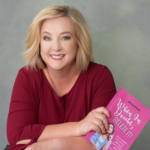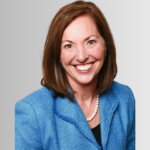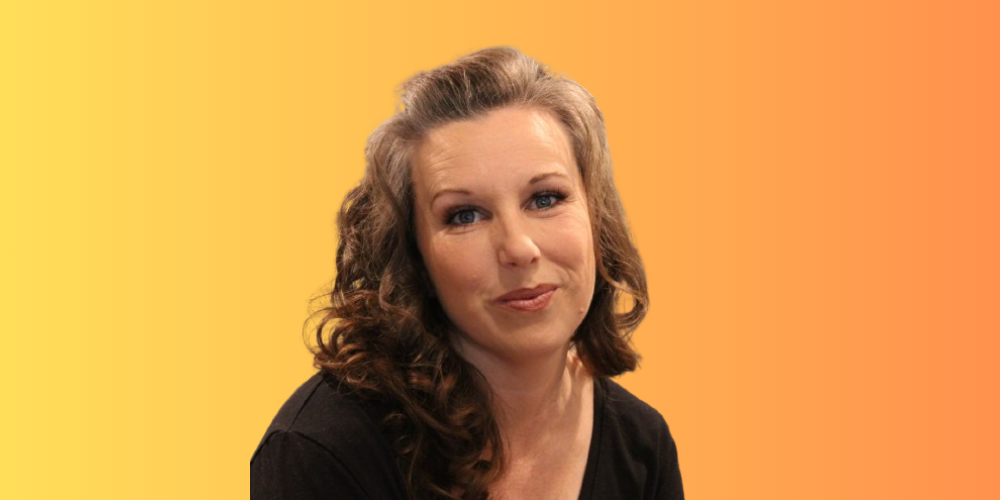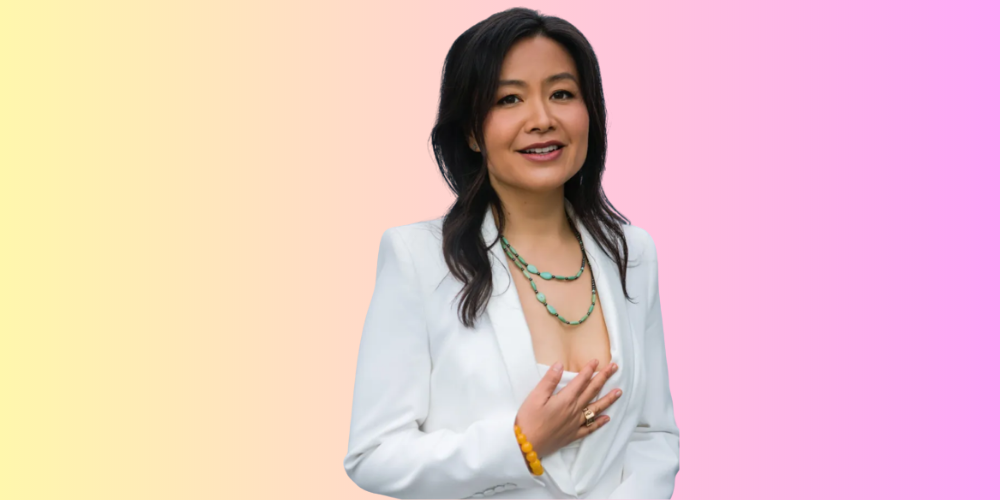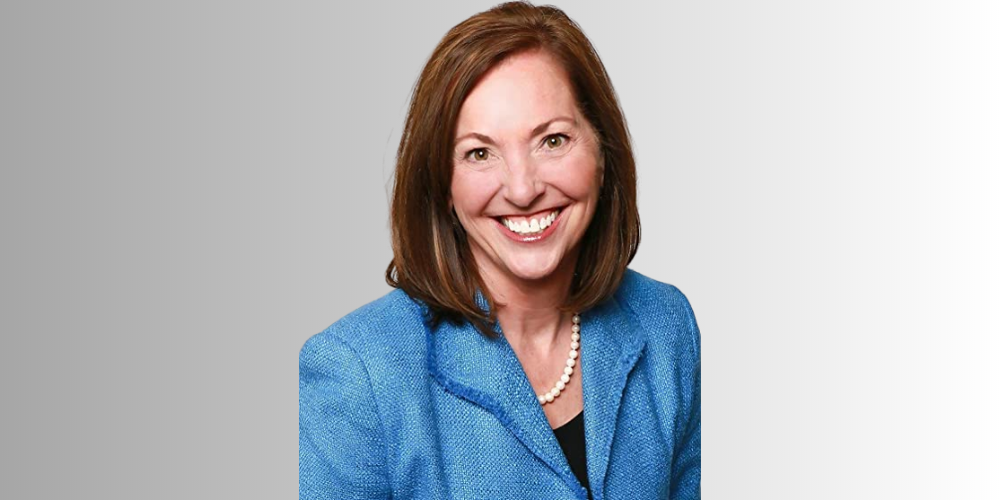Raj Girn: In this first week of April, where our theme is Mindset and Clarity, this two-part series is entitled `How to Flex Your Money Mindset to Be Wealthy Now.’ My guest is one of Canada’s best-loved authorities on personal finance, Melissa Leone.
Here’s a bit about Melissa before I bring her on. She’s a sought-after speaker, national media personality and award-winning writer. She’s the best-selling author of the feel-good finance guide ‘Happy Go Money.’ She’s the resident money expert on Canada’s leading daytime talk show, ‘The Social‘, and the host of the top business podcast, ‘Money Moves: Conversations About Investing.’ Her articles have appeared in newspapers across the country and she is the personal finance writer for The Financial Post. Please welcome to part 1 of the show, the fabulous Melissa Leong.
Here is Part One of our conversation:

Raj Girn: Melissa, what an absolute pleasure to have you on my show. And there’s only one thing I could think about, and that was it’s about time.
Mellisa Leong: Yes. I’m so excited, Raj. I’m so excited.
OK, so can we just, like, jump right in? Because, you know, I have to pick your brain like crazy for our audience.
Please. I’m ready.
OK, so let’s do this. I want to talk a little bit about understanding money, you know, and then work our way into kind of money mindset and then, you know what welfares . . . because all of that seems to be a mishmash for a lot of us. Especially since none of us really got like that full education on being able to kind of differentiate between what all these things are. So let me start with asking you this.
Understanding money is something that unfortunately our school system doesn’t teach us similar to other important life lessons like building relationships and nurturing children, like really, really important things that we don’t really get learning from. We’re kind of left on our own and money is no different. What is it about understanding money that you wish everyone on Earth knew?
Everyone on Earth. Sometimes I get these questions and there isn’t like a secret, a money formula or something that I wish that people knew in terms of knowledge, in terms of facts.
However, I do wish that people had an idea that money is simply a tool. It doesn’t have any meaning. It is just a tool, in which case you have a tremendous responsibility as well as opportunity to build the life that you want, something that has meaning to you, something that is happy, fulfilled, based on using this tool properly.
And so you just have to have a clear vision of the things that you value in life and then use money and your resources and allocate them to those things so that you are living in line with your values.
So let me ask you this then. Would you be able to maybe give us chronological steps, order of some sort, for people who need to implement this from the time that they start earning their first income to retirement and to kind of be able to retire in a place where they’re not worrying about money? Are there any kind of milestones that you feel people need to kind of hit? This a big question, I know.
Yes. Let’s talk. We have like like 48 hours right on this podcast? Let’s do this.
No, I will talk about five things that I think regardless of your age, regardless of where you are in your financial journey, if you focus on some of these things, you will be on better financial ground. You will be more empowered when it comes to your money.
The first thing is before you embark on any kind of journey, you have to figure out where are you? Where are you standing right now? This is before you go on any kind of fitness regime, you don’t say, I think I need to do more push ups. Okay, well, how many can you do right now? You have to stop and figure out, you know, you do your weigh in, you figure out where you want to go, what your goals are. And that can only be done by taking stock. So you may have already done a budget. You may have already done a net worth calculation and you know where you are. But if you are going to go on the next chapter of a journey, you stop and you figure out, Okay, well, what is it right now? How much am I making? Where is it going?
So looking at the inflow and outflow of your money is something that I think is a regular thing that we should do. I mean, I don’t do it every day, but I think that taking a look at your bank account statements and just getting a sense of what’s happening there is important because then step number two comes into play.
And when I go to conferences, when I talk to people, usually men will come up to me and they will say, Okay, well, listen, let’s talk about some of your best practices when it comes to getting rich or being wealthy or financial success. What is it? Let’s talk about cryptocurrency. Let’s talk about Forex trading in the stock market. What’s your hot tip? And I say, oh, I do. I have a formula for you. That formula is: Make more than you spend. That’s it. That is personal finance success 101.
“Make more than you spend.” ~Mellisa Leong
And I, I think people think, well, that’s a given, Melissa, but as we all know, and can appreciate, that’s not always what is happening. There are a lot of Canadians who do live paycheck to paycheck. There are people who buy beyond their means and go into debt. There are people with tremendous wealth, like professional athletes. There’s lots of research that shows that after they retire, many of them go bankrupt.
How is that possible? You make millions, how? But it’s because you spend beyond your means. So, that’s number two, just figuring out, do I make more than I spend and if I do, yay, now you can use that money to really do the work. And if you’re not, is it because you are in great amounts of debt? That’s the other thing.
Number three is to make sure that you are in control of your debt and using it in smart ways. I know in Western societies . . . I mean, this culture is very comfortable with having something now and paying for it later. We are remortgaging our houses to redo the kitchen. We need a new backsplash. And I’m sure our parents would have just lost it if they had heard that we were spending thousands of dollars on credit to do something like that. So that’s number three.
Number four is being prepared for anything that happens because life happens as we know. Look at the pandemic. Look where we are now. Who knew this was going to come around the corner? So making sure that you have some sort of contingency plan in terms of money.
And the number five, that’s when that other part that people think is the main part, which is using your money to save for the future, and that’s investing in whatever you choose to invest in.

Wow. Those are the five right there. And it’s interesting because you think to yourself, okay, you hear these five and you say, “yeah, I know that.” But statistics show that we don’t we are not paying heed to simple fundamentals about money. And I agree with you, it has to do with so many things like the expectations of how we want to live within society. Like the things that our kids want and everybody else wants that we have to take care of because they don’t fully understand — in fact, who really understands — the value of money.
It’s not just about dollars and cents. People think, “oh, well, I know all these fundamental facts.” But part of the conversation that I was having before, this takes stock — what is it that you really value? It’s hard. Life happens. We buy in a state of stress. You know, retail therapy is happening right now in the pandemic. There are things that we know, but human behavior does not always make rational sense or we don’t always behave in ways that serve our bank accounts.
So let’s see if we could establish some sort of range for people. So, if you’ve got people that are in their 20s, 30s, 40s, 50s, 60 and plus and maybe you would look at this from the perspective of maybe grouping some of those together. What should people have accomplished by a certain decade from a financial perspective so that they’re ready to hit that retirement phase without being stressed out? Is there some guideline that you can help and share our audience to kind of get their stuff together, there?
So, Raj, I wish that I had some sort of magic ladder or number that people need to reach or benchmark, but I really think that rules of thumb do a disservice to a lot of people because life happens. But I can talk in general about when you were starting your career there’s so much that is a challenge for you, especially when you’re starting out. Because a lot of people nowadays, as you know, are graduating with lots of debts. The standard of living has . . . You know the price of houses have skyrocketed in major metropolitan areas in Canada. And so the same benchmarks that I had when I was younger trying to establish a career were not the same. It’s so much harder to get on solid ground when you’re younger. But one thing that I wish I had known when I was younger is that even though you have so many competing priorities, saving and debt repayment can be something that you can balance with other things you just have to do a little bit.
I know it seems like, “oh, I got so much. How am I supposed to do this and save as well?” But saving a little bit in the beginning will make it so much easier for you, for future you, decades later.
And so it’s just starting that habit, I think is really important when you are younger. Please, please, please. You have time on your side, start that habit. When you are in your middle years — I guess the your high earning years, I suppose — which tend also to be the most expensive often with families because then you are paying for more things and more programs and you might be squeezed in between taking care of your kids as well as taking care of your parents. There are many, many priorities in those in middle income years, but that’s really where you’re supposed to be pushing to try to make as much as possible because you’re kind of headed towards that home stretch for your later years when you’re closer to retirement, because at that point, you don’t have time on your side anymore. And time is a tremendous, tremendous accelerator for your money. And when you don’t, in those later years you’re really trying to consolidate. Right?
You’re really trying to think, “okay, what sacrifices can I be making right now? Should I be downsizing my home,?” The children are hopefully maybe, maybe not, leaving the nest, in which case my expenses are lower. But at all stages, regardless of where you are, if you’re finding that you are losing your way, if you’re finding that you are worried about what’s happening next, I absolutely recommend visiting a coach or having a discussion with someone just about what your goals are. And your goals are going to change.
And especially in retirement, people think . . . I don’t know. Raj, what’s your retirement like? Like what do you imagine your retirement to be like?
Not have to worry about money to be very honest. I think it’s like the number one with everyone. And like you mentioned, I’m at that point in my life right now where I’m in my early 50s and I’m thinking, boy, I’m supposed to be retired in 10 years. And you think to yourself, will I be ready? And then what does will I be ready look like for me? And will that be different in 10 years to what it is now? I think that we tend to — especially in my generation because I come from a generation where my parents were immigrants so there was a different mindset — there was kind of this scarcity mindset around the whole idea of money. And, you don’t spend it.
And here’s me. I’ve done a fair amount of spending in my time if I was to be completely honest. And the reason is, is that my relationship with money is different than the relationship my parents had with it. For me, part of it is about security. And the other part of it is about me taking care of myself, my self-care — so travel, spa trips, meditation trips. And all this kind of stuff is important to me. Just as important as it is having money always available to me. And I think that’s the other thing. A lot of people from my generation who have a similar scenario, where their parents came from different countries, there is this kind of what is the right thing for me to do in terms of planning out, making sure I stay true to the kind of person that I am, and the value system that’s important to me around money. Which is different than it is with my parents. And perhaps that will be different with my son, who’s 23.
“My relationship with money is different than the relationship my parents had with it. For me, part of it is about security. And the other part of it is about me taking care of myself, my self-care.” ~Raj Girn
I love that you’ve had this discussion in your head, though. I love that you’ve had this talk with yourself because I think that’s what we need to be doing more of. I don’t think we need to hoard like our parents did. But at the same time, I don’t think we need to go to the other end and try to chase things perhaps that we think will make us happy and spend more and not worry so much about the future, because we don’t want to be like our parents or we want to be more free or whatever it is.
But I think what helps when I said see someone, sometimes you need to do the math. Sometimes you need to talk to someone and figure out, well, how much exactly do I need to put away to get the lifestyle that I have now in my 50s with few less expenses, perhaps because maybe some of these will disappear. How much exactly will it take? And then once you have a number — say it’s this a number that you need to be saving every month — say you have that number, then doesn’t that give you so much more freedom to just go on a yoga retreat because you have extra, so spend it.
You’ve already taken care of your priorities. You’re already putting your kid through university with this other savings fund. So the rest is for you to enjoy your life.
Absolutely. That kind of brings another idea into my mind that I’d love to share with you, Melissa. I’m not one of those people that believes that saving is the right way to go always. I feel that you need to take your money and figure out how you can make more money with the money that you have because I’m an entrepreneur. So for me, I don’t like this idea of feeling that I have to keep putting a little bit away every single month so that will compound with the two per cent interest, if I’m lucky, that I’ll get from traditional ways of saving. That doesn’t work for me. It doesn’t excite me. It’s too hard to work so many hours a week for that to be how I need to live.
So for me, I think to myself, what are the different ways that I can create wealth? And that’s another part of our discussion that I want to have. But I don’t want to have it right now. Let me ask you another question because I just feel that a lot of people are going to resonate with the fact that you’re saying get some help from someone that actually can give you options because options give you freedom to be able to be flexible about what is going to work with the reality of who I am and where I need to go.
So let me ask you this. What resources do you recommend people tap into to learn what they need to know in order to build, rebuild or reimagine a healthy relationship with money? What are your thoughts around that? Like where can you guide them to go?
I think when you talk about resources, I think it should start with the person because everyone is different and everyone learns and absorbs information differently.
And so there are thousands of resources out there. If you want to learn about money, especially given the Internet. You could find anything on the Internet, but you have to make sure that obviously that what you are reading, whether that’s a Reddit forum or TikTok or whatever, wherever you’re getting your financial information that it is from a reputable source.
Love that you said TikTok.
Well, someone just told me this morning that they invested in something that was quote-unquote TikTok investment that they heard.
Oh, my gosh. I love that. I love that.
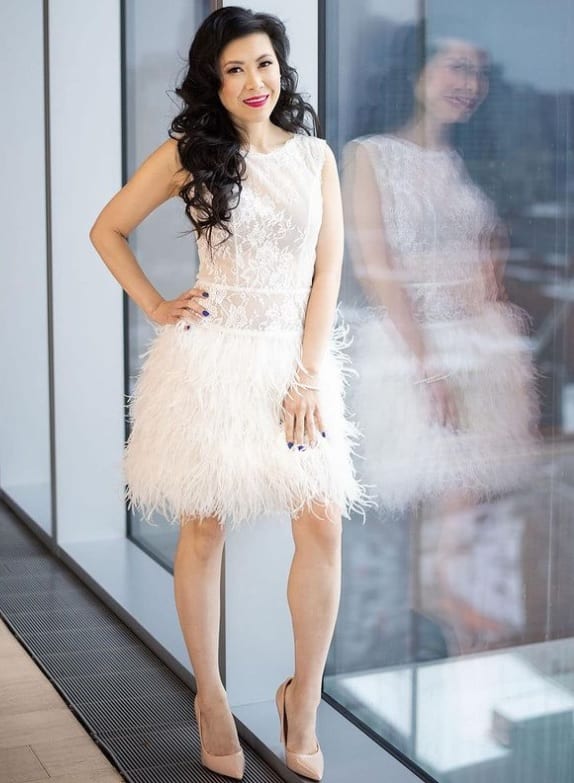
And I thought, what is happening? What is going on right now? We need to have a call. Call me back after so we can talk about some of the implications of what are you what you were doing with your money.
That’s a separate conversation for another day. But that could take the form for you, in terms of if you are somebody who like me, I’m a busy mom and I don’t have a lot of time to sit down and read without the kids crawling all over me.
And so sometimes when I’m washing the dishes, I listen to podcasts. I listen to money podcast and talking about different issues. You might be somebody who just loves guides. There are tons of personal finance guides out there. You might be somebody who likes to use your phone or needs to hear it from a real person, in which case you would engage maybe somebody in your bank or an advisor or coach and ask them lots and lots of questions to make sure that you are a driver when it comes to your money and not just sitting in the passenger with your eyes closed, letting somebody else handle it. Right?
It’s just a journey that you’re going to take for yourself in terms of learning something new every day when it comes to money, even if it’s just at the end of listening to this podcast and you don’t have your bank app downloaded to your phone — could be that. Just download your bank app to your phone and make a resolution that you will check it regularly.
I want to ask you this, Melissa. What do you wish you knew about money in year one of when you started working that you think may have changed your life today? What, looking back, could that have been for you?
I wish I had known two things, but I could not have known them then. But the first thing is the magic. I just discussed this earlier. It’s the magic of time. If I had just put a little bit away in my early 20s, then I would not be scrambling when in my 30s and 40s to put more away.
I could have put it less back then and just let it grow was like somebody was handing me a snowball and I could have just started pushing it and it would have gotten massive instead of right now where I’m trying to grab vast amounts of snow and try to push it together.
That’s one thing I wish I had known that small habit is something that I could have really taken advantage of. The second thing I wish I had known that I’m still trying to discover and to process right now is something that you talked about. That we learn things from our parents. Whether you like it or not, your idea of money is largely shaped by how you were brought up, by what you saw, by how your parents talked about money. So take a moment and think about that. Think about how your parents handled money and how that plays out for you today.
“Your idea of money is largely shaped by how you were brought up, by what you saw, by how your parents talked about money.” ~Melissa Leong
And for me, I really did have a scarcity mindset. Money was something that you toiled for. My family were new immigrants and they worked in a restaurant. They worked every holiday. I never spent a single Mother’s Day, New Year’s Eve, Christmas Eve with my family because they were working. And for me, that was virtuous. That was something you had to do. You worked so hard for your money, in which case you better save it. You better not spend it. You better not take risks with it.
And that hasn’t served me because I thought, well if I work hard, I’ll get that raise. And that’s not how it works in this world, especially as a young woman of colour in an industry where you need to speak up for yourself if you want to earn more. And it didn’t serve me when I had to take more risks to become an entrepreneur, to really invest in myself and in my business. I was always reluctant to do that. But again, you do need to take risks when you are an entrepreneur with money. It’s a balance. It’s making sure you have money for rainy day funds and making sure that you are taken care of for the future, but also making sure that you were spending money on growth.
Absolutely, and, you know, this is a great segue into asking you about something that I think is the fundamental crux and holy grail about, reimagining your relationship with money. And that is money mindset. Can you explain for our audience what is money mindset?
Your money mindset is essentially just your attitudes and your beliefs about money. Because essentially what you feel about money, how you view it, will affect how you save, spend, borrow and invest. And, like I said, a lot of that tends to come from your family.
“Your money mindset is essentially just your attitudes and your beliefs about money. Because essentially what you feel about money, how you view it, will affect how you save, spend, borrow and invest.” ~Melissa Leong
And so sometimes it’s just having a conversation with your friends or yourself or your partner and asking questions about, well, how did you view money when you were growing up? How did your parents view it? My husband told the other day — we were having a discussion. I won’t say arguing. We were having a discussion, Raj. And he said, “you know what? You have such a hard time parting with money.” And I was taken aback because I thought, “are you calling me cheap?”
You know, you have all these these judgments attached to money, right? It’s about vanity. It’s about pride. And and I thought I’m very generous with my money. What are you talking about? But he meant on myself. I don’t spend money on myself.
That is a mindset that I have that I’m still trying to work out. And we all have those.
We do, you’re right. So from your experience, from people that you’ve talked to, talks that you’ve done, what would you say about this whole kind of idea about limiting beliefs where money is concerned?
Because we grapple with it. We really do. Like how do we transform this kind of limiting beliefs around money to a growth mindset that’s healthy? Like what can you say to people? Especially now with what’s going on in the world?
Yes. You know what? Sometimes I talk about this. I don’t use that terminology. I find that sometimes people get stuck on growth mindset, you know, that this idea of scarcity versus abundance. Like, what are you talking about exactly? I usually talk to my friends in a very straightforward way and say.
Are you talking about money negatively? Just how about that. Let’s just start there. Because let’s say, for example, this came up with my girlfriends when we were discussing how we were talking about money in front of our kids, especially during the pandemic. Our children have never been home with us more now, ever. They are absorbing. They are watching. Everything you do with money and money is stressful right now, especially. And so what is it that you are passing on to the next generation when it comes to money?
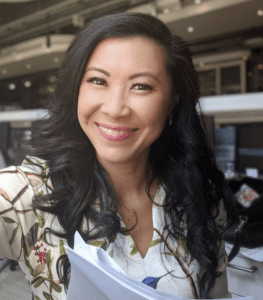
And we suddenly became very aware of the fact that we talked about money so negatively. And that is what limits you because you are it’s an internal dialog and our actions basically follow what our brains tell ourselves. It’s a narration. It’s a narrative of our lives. And so if you say: “Well, I’m never going to make that amount of money” or “I’m never going to understand money. I’m never going to be good with money. I can’t, investments are just so overwhelming. I’ll leave that to my husband.” What exactly are you saying? You are creating a story for yourself that may not be true. Money is not the root of all evil. Rich people are not all buttheads, What is rich, even? What is wealth even? And so you have ideas about money that may not serve you. Like me. Like I did. I thought money was something that you just had to work so hard for and that wasn’t helpful to me.
I think that has a lot also to do with the fact that we’re women. Let’s tap into that a little bit.
Thank you so much for staying till the end, guys. I really hope you enjoyed the show and will action the many insights that were shared. The money mindset is far more than what value money brings to your life. It’s about scarcity mindset, growth mindset and how wealth has very little to do with how much money you make. My hope is that this episode, at the very minimum, will open your mind to think about your relationship with money and whether it’s serving you and what your options are if it’s not. As I close off the show, I hope that you found this episode to be valuable.
“The money mindset is far more than what value money brings to your life. It’s about scarcity mindset, growth mindset, and how wealth has very little to do with how much money you make.“ ~Raj Girn
And if you did, I’m really glad. I ask you to please subscribe to this podcast. On your Apple, Android and Spotify platforms, search ‘The Transform Your Confidence Show. On our YouTube channel at the Open Just Confidence Academy. And if you’re an avid reader like I am, we’ve also transcribed every podcast into a blog which you can access at TheOpenChestConfidenceAcademy.com/media/our-media. And also please hop over to our private Facebook group at Transform Your Confidence, where there are networking opportunities as well as knowledge and resources about mindset, media, communications, branding, marketing, leadership and advocacy for busy executives and entrepreneurs like you who are seeking to elevate the quality of their life. You know, you’ve got to be there. And as always, thanks for tuning in, guys. And until the next episode, take care of yourself.





